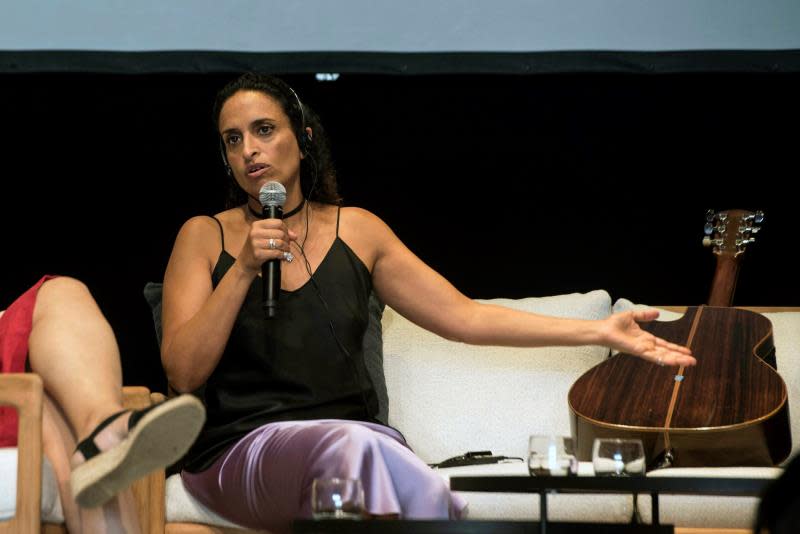Sant Lluís (Menorca), Jun 20 (EFE) .- Art as a political commitment has been defended this Saturday by the Israeli singer Noa, the flamenco dancer María Pagés and the Hispanic Moroccan writer Najat El Hachmi, who have opted for militancy and dialogue to end violence and social inequalities.
The three artists have participated in the III Albert Camus Trobades held in Sant Lluis, a Menorcan town where the French intellectual’s grandmother was originally from and which in this third edition are dedicated to dialogue in the Mediterranean.
Achinoam Nin, known as Noa, an Israeli composer and activist with Yemenite Jewish roots, has paid “a very high price for this political commitment,” she said. But she insists on being a “controversial” and “political” artist and demanding that Israel speak of “oppression” and “occupation”.
“It is not easy to be Israeli at the moment”, the singer Noa (Tel Aviv, Israel, 1969) has previously recognized in a meeting with journalists in which she wanted to leave a clear message: “the violence must stop and this is out It is not justified by either the Israeli or the Palestinian side, “he stressed.
Dialogue is the most important thing in life for Noa and she considers that the only way to “emerge” from the cycle of violence between Israel and Palestine is to “start listening” and dialogue.
Israel and Palestine have their narrative and their history and the big problem is that “we do not listen to the other’s story.” And the only way to emerge is “to listen to the story of the other and start talking. When there is dialogue, there is commitment.”
Noa explained that in her country they have come to ask for her nationality to be taken away: “they have boycotted me, but I am not going to break my passport but I want to fight for peace. You have to raise a very strong voice, use social networks” stressed the singer, who has been optimistic because she believes that more and more people know that there is no other option.
The Hispanic Moroccan writer Najat el Hachmi (Nador, Morocco, 1979), winner of the Nadal Prize 2021 for her novel “They will love us on Monday,” recalled how she decided “not to turn her back” on reality, because it was her own.
“There are creators who can afford not to acquire a political commitment, but that is not my case. My reality pushed me directly to a writing that reflected the suffering in the lives of people who are never protagonists of novels.”
In “They will love us on Monday”, Najat el Hachmi narrates the friendship between two young women, daughters of Moroccan immigration, in the years before the crisis and reflects the difficulties they face when living in an immigrant majority and urban segregated neighborhood, in which the emancipation and independence of women is strongly questioned.
“There is an invisibility of a very important part of the inhabitants of this world,” said the writer, who has defended that artistic creators cannot turn their backs on reality and have the responsibility “to generate an alternative discourse and deal with that reality. “
And as a woman, she has indicated, “it is her turn” to write “to show that what a woman writes is as universal as what a man writes.” And as a writer who was born in a town in northern Morocco, “I choose to represent that reality that has never been represented, not to do it justice but because there is as much life in that town as anywhere else.”
The bailaora María Pagés (Seville, 1963) recalled how she began to dance because it made her happy but that, as she grew as an artist, she found that she did not do it for herself, since art serves to generate a relationship with the viewer.
“Art is an ethical responsibility too,” Pagés pointed out, for whom “artists and spectators are part of the work” so claiming “this dialogue is claiming the arts as tools of commitment.”
Among the arts, he has opined, dance is the “poorest sister, perhaps because there are a majority of women, discriminated against because they are more feminine,” said Pagés, a pioneer in understanding flamenco dance as a contemporary cultural expression.
“Dance unites and breaks boundaries. Art helps to live, dance helps to live”, the bailaora concluded.

 —
—

